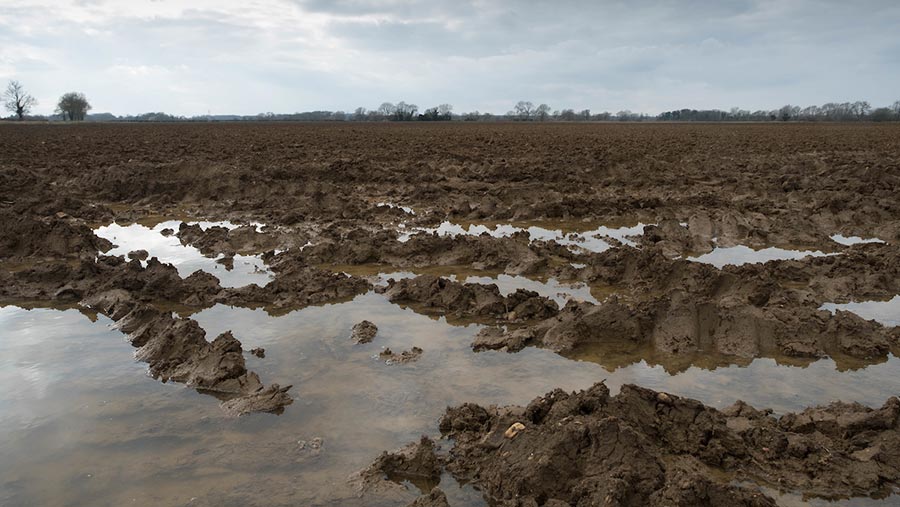7 ways to flood-proof soils and improve drainage
 © Tim Scrivener
© Tim Scrivener Arable growers need to follow a seven-point plan to improve their soil structure especially if, as expected, new farm support payments will depend on healthy soils.
With many arable areas waterlogged this winter and flooding seen more often due to climate change, there is a need to find ways to drain land more efficiently.
Jenni Dungait, independent soils expert, says organic matter and air within soils are important as soil health could be critical in a new “public money for public good” farm policy after Brexit.
“With payments for public good in the future, healthy soil functions deliver public good,” she says, adding that the ideal soil should be 45% mineral, such as sand and clay, 25% air, 25% water and 5% organic matter.
See also: Tips on assessing the health of your soil
Good soil structure
Prof Dungait adds that soil organic matter creates and stabilises soils aggregates, while air spaces are very important in soils to help root and soil biology, aid nutrient update and prevent waterlogging.
Without good soil structure, growers can see 100% losses in winter crops after 15 days of flooding, and even grassland begins to die after two weeks under water, so soil compaction should be avoided, she adds.
“Heavy machinery and repeated cultivations are the key causes of soil compaction,” says Prof Dungait.
To try and manage good soil structure for the future she advises growers to:
- Minimise tillage to reduce the loss of soil structure and organic matter.
- Limit farm traffic to operate only when dry and avoid travelling when wet.
- Manage drainage.
- Use cover crops, green manures and mulches.
- Use grass leys to improve organic matter.
- Use plants with large roots.
- Try agroforestry to help with drainage, using fast-growing trees.
Prof Dungait suggests growers ask themselves whether their soils are climate proofed and look at self assessment through three methods:
- Visual examination of soil structure.
- Try an infiltration test to see how quickly water passes through the soil.
- Use a pentrometer, which can cost about £250. This measures how much pressure is need to penetrate the soil.
Prof Dungait was speaking at a recent BASF Real Results meeting looking at the group’s new cereals fungicide Revystar which is being launched this season. The event was held at Beeswax Dyson Farming in Lincolnshire.

